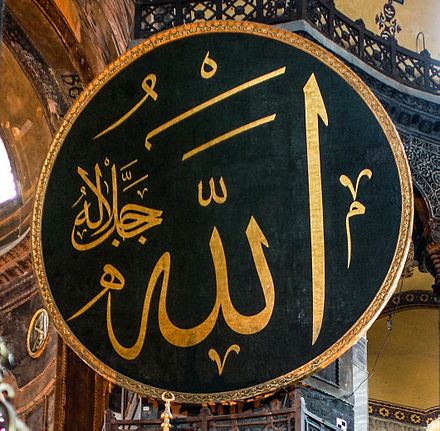Zakat is one of the Five Pillars of Islam, a core obligation for Muslims, and a powerful tool for building a just society. Rooted in the Quran and the teachings of Prophet Muhammad (PBUH), Zakat is not just a form of charity—it is a divine system for purifying wealth, uplifting the needy, and promoting social justice.
Understanding Zakat: Definition and Core Principles
What is Zakat?
- Zakat means “purification” and “growth.” It is the mandatory act of giving a fixed portion of one’s wealth to designated groups in society, as commanded by Allah (SWT).
- Zakat is distinct from voluntary charity (sadaqah); it is an obligation for every eligible Muslim.
Quranic Foundation
Surah Al-Baqarah, Ayah 43
وَأَقِیمُوا۟ ٱلصَّلَوٰةَ وَءَاتُوا۟ ٱلزَّكَوٰةَ وَٱرۡكَعُوا۟ مَعَ ٱلرَّ ٰكِعِینَ
And establish prayer and give zakah and bow with those who bow [in worship and obedience].
[2:43]
- Zakat is mentioned alongside prayer (salat), showing its central place in Islamic life.
Hadith Emphasis
- The Prophet Muhammad (PBUH) said:
“Zakat is one of the five pillars of Islam.”
(Sahih Bukhari)
Zakat in the Quran: Justice, Purification, and Social Responsibility
Zakat as a Means of Purification
Surah At-Tawbah, Ayah 103
خُذۡ مِنۡ أَمۡوَ ٰلِهِمۡ صَدَقَةࣰ تُطَهِّرُهُمۡ وَتُزَكِّیهِم بِهَا وَصَلِّ عَلَیۡهِمۡۖ إِنَّ صَلَوٰتَكَ سَكَنࣱ لَّهُمۡۗ وَٱللَّهُ سَمِیعٌ عَلِیمٌ
Take, [O, Muhammad], from their wealth a charity by which you purify them and cause them increase, and invoke [Allah ‘s blessings] upon them. Indeed, your invocations are reassurance for them. And Allah is Hearing and Knowing.
[9:103]
- Zakat cleanses wealth and purifies the soul from greed and selfishness.
Zakat and Social Justice
Surah Al-Baqarah, Ayah 177
۞ لَّیۡسَ ٱلۡبِرَّ أَن تُوَلُّوا۟ وُجُوهَكُمۡ قِبَلَ ٱلۡمَشۡرِقِ وَٱلۡمَغۡرِبِ وَلَـٰكِنَّ ٱلۡبِرَّ مَنۡ ءَامَنَ بِٱللَّهِ وَٱلۡیَوۡمِ ٱلۡـَٔاخِرِ وَٱلۡمَلَـٰۤىِٕكَةِ وَٱلۡكِتَـٰبِ وَٱلنَّبِیِّـۧنَ وَءَاتَى ٱلۡمَالَ عَلَىٰ حُبِّهِۦ ذَوِی ٱلۡقُرۡبَىٰ وَٱلۡیَتَـٰمَىٰ وَٱلۡمَسَـٰكِینَ وَٱبۡنَ ٱلسَّبِیلِ وَٱلسَّاۤىِٕلِینَ وَفِی ٱلرِّقَابِ وَأَقَامَ ٱلصَّلَوٰةَ وَءَاتَى ٱلزَّكَوٰةَ وَٱلۡمُوفُونَ بِعَهۡدِهِمۡ إِذَا عَـٰهَدُوا۟ۖ وَٱلصَّـٰبِرِینَ فِی ٱلۡبَأۡسَاۤءِ وَٱلضَّرَّاۤءِ وَحِینَ ٱلۡبَأۡسِۗ أُو۟لَـٰۤىِٕكَ ٱلَّذِینَ صَدَقُوا۟ۖ وَأُو۟لَـٰۤىِٕكَ هُمُ ٱلۡمُتَّقُونَ
Righteousness is not that you turn your faces toward the east or the west, but [true] righteousness is [in] one who believes in Allah, the Last Day, the angels, the Book, and the prophets and gives wealth, in spite of love for it, to relatives, orphans, the needy, the traveler, those who ask [for help], and for freeing slaves; [and who] establishes prayer and gives zakah; [those who] fulfill their promise when they promise; and [those who] are patient in poverty and hardship and during battle. Those are the ones who have been true, and it is those who are the righteous.
[2:177]
- The Quran links true faith with giving wealth to those in need, making charity a sign of righteousness.
Eight Categories of Zakat Recipients
Surah At-Tawbah, Ayah 60
۞ إِنَّمَا ٱلصَّدَقَـٰتُ لِلۡفُقَرَاۤءِ وَٱلۡمَسَـٰكِینِ وَٱلۡعَـٰمِلِینَ عَلَیۡهَا وَٱلۡمُؤَلَّفَةِ قُلُوبُهُمۡ وَفِی ٱلرِّقَابِ وَٱلۡغَـٰرِمِینَ وَفِی سَبِیلِ ٱللَّهِ وَٱبۡنِ ٱلسَّبِیلِۖ فَرِیضَةࣰ مِّنَ ٱللَّهِۗ وَٱللَّهُ عَلِیمٌ حَكِیمࣱ
Zakah expenditures are only for the poor and for the needy and for those employed to collect [zakah] and for bringing hearts together [for Islam] and for freeing captives [or slaves] and for those in debt and for the cause of Allah and for the [stranded] traveler – an obligation [imposed] by Allah. And Allah is Knowing and Wise.
[9:60]
- Zakat is distributed to specific groups, ensuring targeted social support and justice.
Zakat in the Hadith: Practical Guidance and Spiritual Rewards
Spiritual and Social Benefits
- The Prophet Muhammad (PBUH) said:
“One who pays Zakat, Allah will make their wealth increase.”
(Sahih Bukhari) - Zakat is described as a means to purify wealth and a way to gain closeness to Allah (SWT).
Zakat as a Right of the Poor
- The Prophet Muhammad (PBUH) said:
“Zakat is a right that the poor have upon the rich.”
(Sahih Bukhari) - This teaching emphasizes that Zakat is not a favor, but a duty and a right, establishing a sense of justice and accountability in society.
Reward and Accountability
- The Prophet Muhammad (PBUH) said:
“Giving Zakat is more beloved to Allah than giving in charity during the entire year.”
(Sahih Bukhari) - Neglecting Zakat is warned against in both Quran and Hadith, with severe consequences in the Hereafter.
The Transformative Impact of Zakat on Society
Promoting Social Justice and Reducing Inequality
- Zakat redistributes wealth, supports the poor, and prevents the concentration of wealth among the rich.
- It provides a safety net, reducing poverty and empowering recipients to become self-sufficient.
Building Community and Brotherhood
- Zakat fosters empathy, solidarity, and a sense of brotherhood among Muslims, strengthening community bonds.
- It encourages Muslims to care for one another and creates a culture of compassion and responsibility.
Historical Example: The Caliphate of Umar ibn Abdul Aziz (RH)
- During his rule, Zakat was so effectively implemented that it became difficult to find anyone eligible to receive it, illustrating its potential to eradicate poverty and build a just society.
Common Misconceptions and Challenges
Misconception: Zakat is Just a Tax
- Zakat is not merely a financial obligation; it is an act of worship and spiritual purification, intended to please Allah (SWT) and benefit society.
Challenge: Proper Distribution
- For Zakat to achieve its purpose, it must be distributed according to the guidelines in the Quran and Sunnah, ensuring that the most deserving benefit.
How Zakat Inspires Personal and Social Change
Personal Growth and Spirituality
- Paying Zakat develops self-discipline, gratitude, and detachment from materialism.
- It reminds Muslims that wealth is a trust from Allah (SWT) and must be used responsibly.
Social Transformation
- Zakat can transform communities by funding education, healthcare, and social welfare projects, creating opportunities for the less fortunate.
Conclusion: Zakat—A Pillar of Justice and Mercy
Zakat stands at the heart of Islam’s vision for a just society. It purifies wealth, uplifts the poor, and strengthens the bonds of community. By fulfilling this divine obligation, Muslims embody the values of compassion, equity, and responsibility, contributing to a world where justice prevails and every individual is cared for. Let us remember the wisdom of the Quran and the guidance of the Prophet Muhammad (PBUH), and make Zakat a living reality in our lives and communities.







